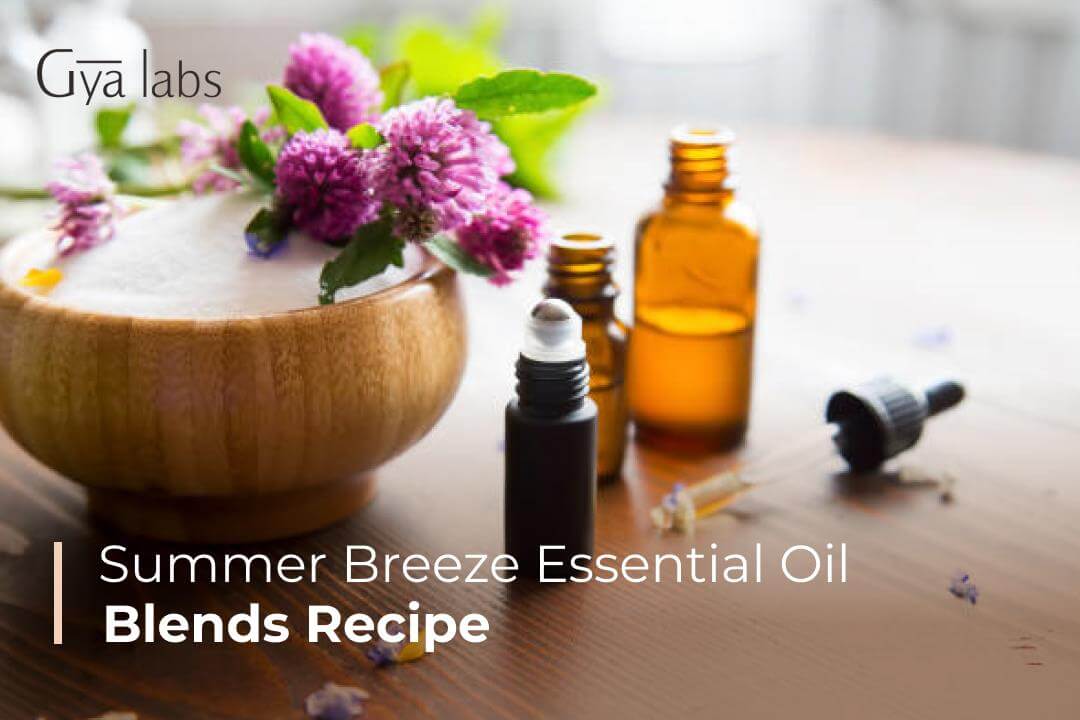If you're seeking a natural and effective way to promote relaxation and reduce stress, essential oils are your go-to solution. By blending the power of pure essential oils and harnessing the benefits of aromatherapy, you can create a tranquil oasis in your own home.
In this article, we'll explore 5 carefully crafted essential oil blends designed to help you relax, calm your mind and body, and find inner peace.
From the soothing properties of lavender and bergamot essential oils to the grounding effects of frankincense essential oil, these blends are your gateway to stress relief and ultimate relaxation. So, grab your diffuser, discover the magic of essential oil diffuser blends, and embark on a journey of serenity and well-being.
Do Calming Essential Oils Really Work?
Calming essential oils have long been praised for their ability to induce relaxation and promote a sense of tranquility. When it comes to blends for relaxation, incorporating relaxing essential oils is key. The best essential oils for this purpose are those known for their calming properties, such as lavender essential oil, clary sage essential oil, chamomile essential oil, cedarwood essential oil, and bergamot oil.
To experience their benefits, you can add these essential oils to your aromatherapy diffuser or create your own diffuser blend recipes. The aroma of these oils can help you unwind and alleviate stress and anxiety. Applying undiluted essential oils topically is not recommended, so it's important to dilute the essential oil into a carrier oil like sweet almond oil before use.
One popular essential oil for relaxation is lavender oil. Its floral scent is renowned for its calming and relaxing effects. Another option is chamomile oil, which has a sweet, soothing aroma. Cedarwood oil is also known for its calming properties and can be a great addition to your relaxation routine. Clary sage oil is often used to promote restful sleep and is one of the blends commonly employed for relaxation.
It's important to note that while essential oils can be beneficial for relaxation, they should be used safely. Always dilute essential oils before applying them to the skin and perform a patch test to check for any adverse reactions. When inhaling essential oils, ensure proper ventilation and avoid using undiluted essential oils in a diffuser.
Incorporating essential oils into your daily routine can enhance relaxation and promote better sleep. You can add a few drops of essential oils to your diffuser, create your own blends, or even apply diluted oils to your pulse points. Remember, the power of essential oils lies in their natural properties, so choose high-quality, pure essential oils and enjoy the soothing benefits they provide for relaxation and overall well-being.
DIY Diffuser Blend Recipes with Best Essential Oils
Are you looking for some do-it-yourself (DIY) blend essential oil recipes to create a calming and relaxing atmosphere? Look no further! here are 5 easy-to-make blends for relaxation using the best essential oils known for their calming properties.
Recipe #1: Serene Slumber Blend
- Lavender oil: Promotes relaxation and restful sleep.
- Cedarwood oil: Creates a tranquil ambiance and helps calm the mind.
- Bergamot oil: Uplifts the mood and reduces anxiety.
Recipe #2: Calm and Cozy Blend
- Roman chamomile oil: Soothes and comforts, perfect for winding down.
- Clary sage oil: Relieves stress and promotes relaxation.
- Sweet orange oil: Adds a touch of brightness and joy to the blend.
Recipe #3: Tranquil Oasis Blend:
- Frankincense oil: Deepens relaxation and encourages a sense of peace.
- Vetiver oil: Grounds and centers the mind and body.
- Ylang-ylang oil: Enhances relaxation and soothes the senses.
Recipe #4: Stress Relief Blend:
- Bergamot oil: Eases tension and stress.
- Lavender oil: Calms the nervous system and promotes relaxation.
- Geranium oil: Balances emotions and induces a sense of calm.
Recipe #5: Blissful Retreat Blend:
- Sandalwood oil: Deeply relaxing and promotes a sense of inner peace.
- Patchouli oil: Grounding and encourages relaxation.
- Clary sage oil: Relieves stress and helps calm the mind.
To use these blends for relaxation, add essential oils to your diffuser according to the manufacturer's instructions. You can also apply undiluted essential oils topically by mixing them with a carrier oil like sweet almond oil.
Remember to always use essential oils safely and consult a healthcare professional if you have any concerns.
Want to learn more about calming essential oil blends? Check out this helpful guide: Gya Labs - Calming Essential Oil Blends for Peace.
How To Use Calming Essential Oils for Relaxation
Using calming essential oils is a wonderful way to relax and create a peaceful environment. Here are some tips on how to effectively use these oils for relaxation:
1. Diffuser Blends:
Create your own diffuser blend by combining a few drops of relaxing essential oils such as lavender, chamomile, and clary sage. Add these oils to your aromatherapy diffuser and let the soothing aroma fill the room.
2. Topical Application:
Dilute your chosen essential oils in a carrier oil like sweet almond oil, and apply the mixture to your wrists, temples, or neck. Gently massage the oils into your skin to promote relaxation.
3. Bath Soak:
Add a few drops of your favorite calming essential oils to a warm bath. The steam will help release the soothing aroma, creating a spa-like experience and helping you unwind.
4. Pillow Spray:
Create a DIY pillow spray by combining water and a few drops of essential oils in a spray bottle. Mist your pillow and bedding before sleep to enhance relaxation and promote restful sleep.
5. Inhalation:
Inhaling essential oils directly from the bottle or using a personal inhaler can provide quick relaxation and stress relief. Simply take a deep breath in and enjoy the calming aroma.
6. Blending Essential Oils:
Experiment with different essential oil blends for relaxation. Combine oils like lavender, bergamot, and cedarwood to create a calming and comforting aroma that helps reduce stress and anxiety.
Remember to use essential oils safely. Some oils may need to be diluted before applying to the skin, and undiluted essential oils should not be ingested. It's important to do a patch test before applying any oils topically and consult a professional if you have any concerns.
For additional tips, recipes, and benefits of using essential oils for peace and calmness, explore this article: Inner Peace Essential Oil Blends.
Diffusing Essential Oils Safety Guidelines
1. Quality of Essential Oils: Choose high-quality, pure essential oils from reputable sources. Look for oils that are labeled as 100% pure and therapeutic grade.
2. Dilution: Most essential oils should not be used undiluted when diffusing. It's important to dilute them properly with a carrier oil or water, following the manufacturer's recommendations or general guidelines. For water-based diffusers, you typically add a few drops of essential oil to water.
3. Ventilation: Ensure that the room or area where you're diffusing essential oils is well-ventilated. Open windows or doors to allow fresh air circulation. Avoid using diffusers in small, enclosed spaces for extended periods.
4. Duration: Use essential oil diffusers intermittently rather than continuously. It's recommended to diffuse for 30 minutes to 1 hour at a time and then take a break to give your body a chance to process the oils. Continuous exposure to strong concentrations of essential oils may cause sensitization or discomfort.
5. Start Slowly: If you're new to essential oils, start with a low diffusion time and a small amount of oil to see how you and others in your environment react. Some people may be more sensitive to certain oils, so it's important to monitor your own comfort level and adjust accordingly.
6. Safe Oils for Diffusion: Some essential oils are commonly used for diffusion, such as lavender, peppermint, lemon, eucalyptus, and tea tree. However, it's important to research and understand the specific properties of each oil before use.
7. Pets and Children: Exercise caution when diffusing essential oils around pets and children. Some oils may not be safe for animals, and young children may be more sensitive to certain oils. Keep diffusers out of their reach, and consider consulting with a veterinarian or pediatrician for guidance.
8. Personal Sensitivities and Allergies: Everyone's sensitivity to essential oils may vary. Pay attention to how you and others in your environment respond to the diffused oils. If anyone experiences any adverse reactions, discontinue use immediately.
9. Clean the Diffuser: Regularly clean and maintain your diffuser according to the manufacturer's instructions. This helps prevent the buildup of oils, mold, or bacteria that could affect the quality of the diffused air.
10. Consult with a Professional: If you have any specific concerns or uncertainties about using essential oils, consider consulting with a qualified aromatherapist or professional who can provide personalized guidance.
Remember, essential oils are highly concentrated substances, and using them improperly or in excess can have negative effects. Always prioritize safety and use essential oils responsibly.
Conclusion
A simple and efficient technique to achieve peace and relieve stress is to incorporate essential oils into your relaxing regimen. You may make your house seem peaceful by utilising pure, high-quality oils and safe rules for diffusing essential oils. The calming effects of essential oils may aid in relaxation and well-being whether you choose to diffuse them, use them topically, or take a relaxing bath.
Start out cautiously, take into account any personal sensitivities, and put safety first. Let the alluring aromas of essential oils carry you to a tranquil place as you embrace the healing power of aromatherapy.















